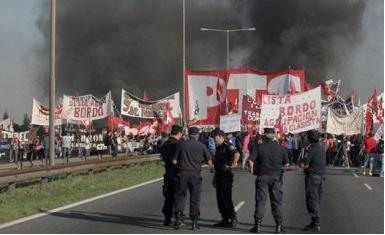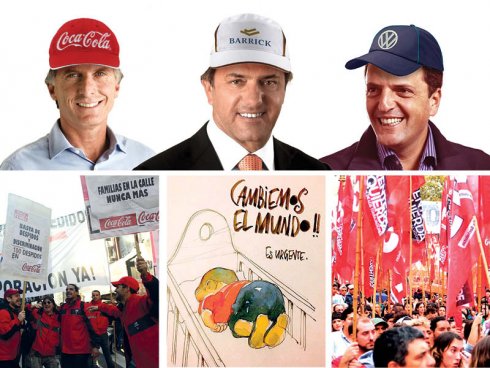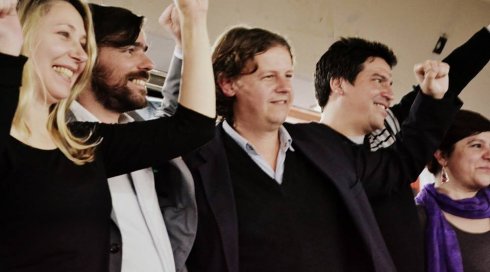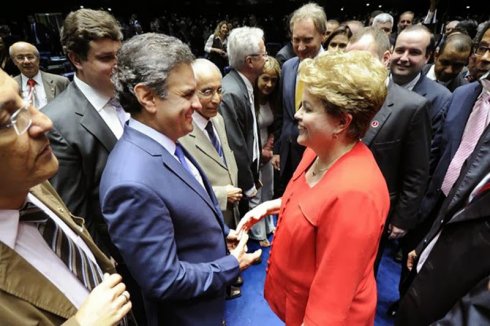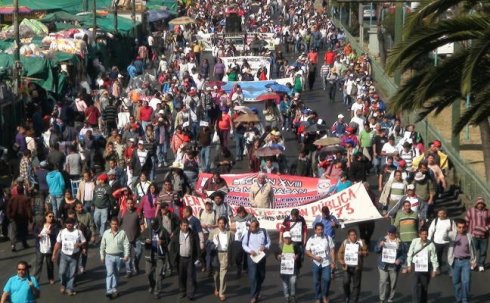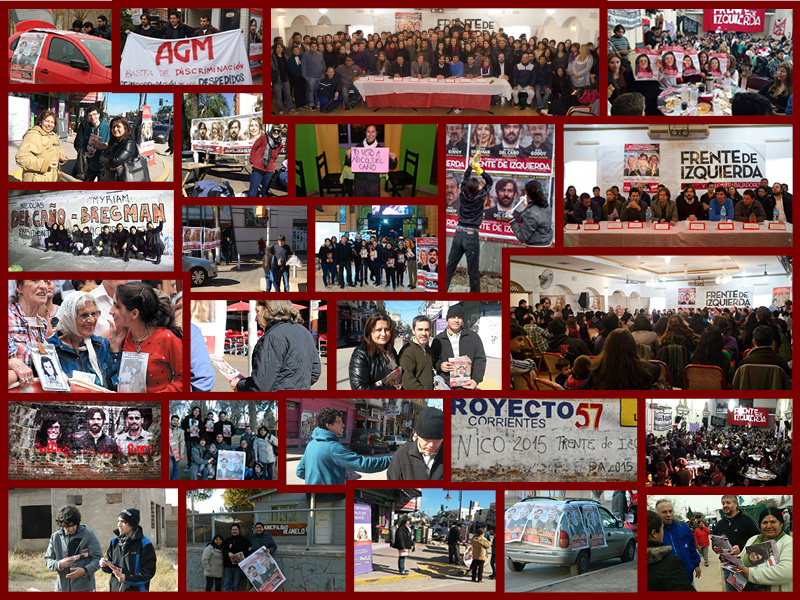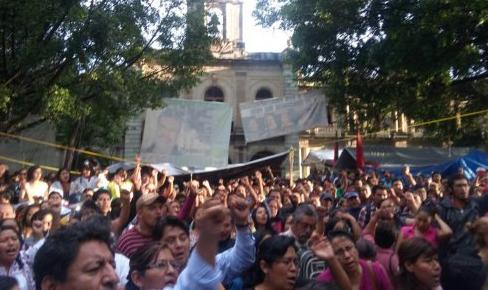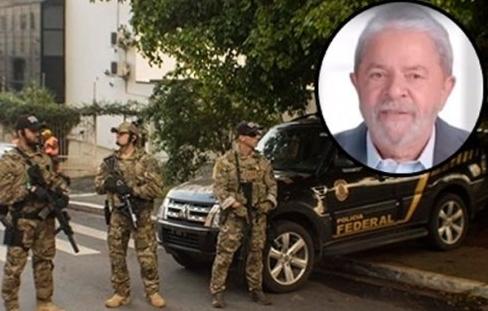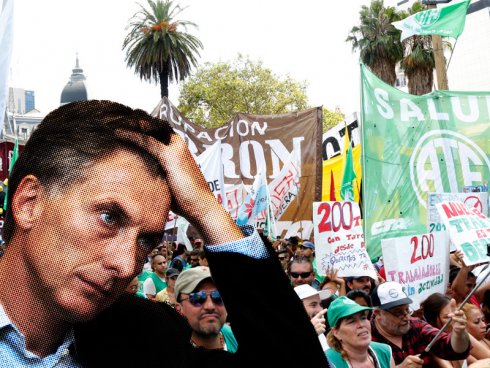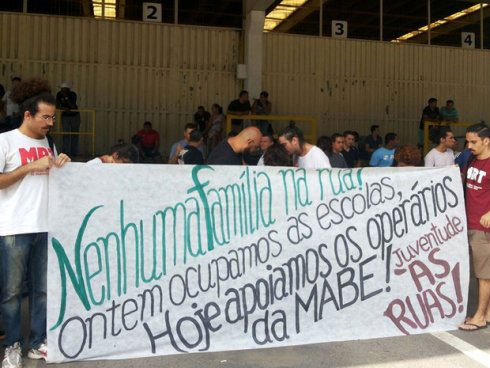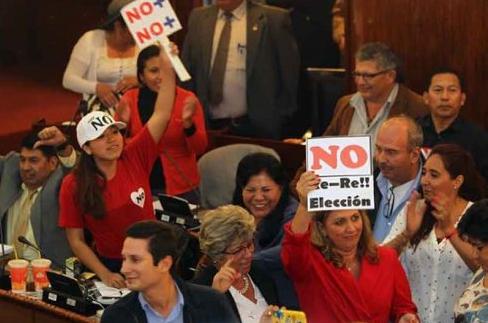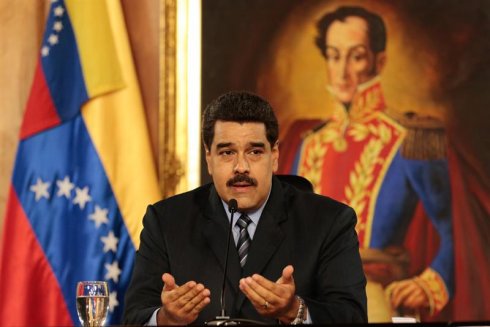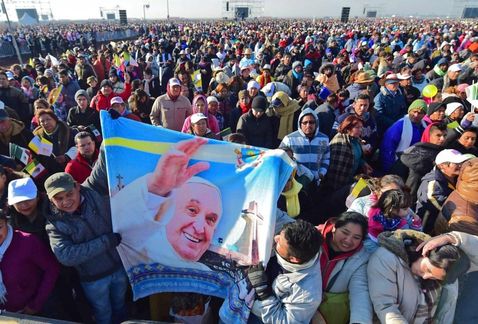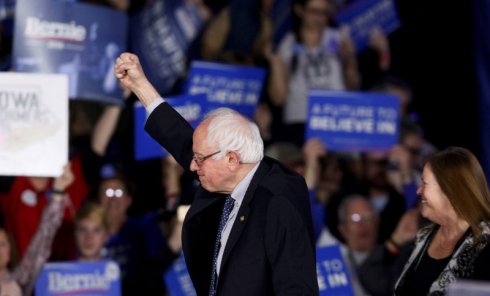Bolivia
Evo carries out repression, but the miners and COB continue the strike and blockades
16/05/2013
The government of Evo Morales is responding to the third day of COB [1] strikes and blockades with repression and McCarthyist discourse.
This morning around dawn, Evo Morales’ police intervened in Caihuasi, where 5000 miners from Huanuni were blockading the highway between Oruro and Cochabamba. In the face of the attack, which resulted in about 10 workers suffering bullet wounds and 100 arrests, the miners dynamited the bridge. At the end of the day the miners regrouped in an assembly to define the next steps they would take.
The third day of the COB strike had the Huanuni miners (miners from Colquiri had confronted police in Caracollo the previous day) as the central protagonists, although road blocks were also maintained at 6 separate points of the country.
On the first day of the strike the mobilisation in Cochabamba had stood out (was in the vanguard), with the presence of factory workers like those from Manaco shoe manufacturers, along with Cochabamban health workers, teachers and others who went on strike and led blockades and confrontations.
In La Paz, as well as roadblocks at various points of the highway, a blockade was also maintained in the region of Apacheta, on the way out of El Alto, by health workers and miners and workers from the (20th century) University of Llallagua. The urban teachers of La Paz announced their participation yesterday, after the first three days. A large attendance is expected at the road blocks and demonstrations.
A leap forward in workers’ opposition to the government
There has not been any working class action as important as this in Bolivia since 2008. That struggle was also a strike over the pension law – but that time only sustained by the miners – which culminated in the murder of two workers and a retreat for the working class. Facing a government strengthened after having defeated the rebellion of the right-wing opposition in the ‘Media Luna’, the COB under the leadership of Pedro Montes moved towards collaboration with the MAS government. In 2010, with the industrial rebellion lead by workers from El Alto, the working class began to protest against the MAS regime. In 2012 health workers led a large strike in resistance to the attempt to extend the working day in hospitals. These days that we are experiencing in May 2013 represent an action of even wider layers of the working class in opposition to the government of Evo Morales.
The Morales government carries out anti-working class measures!
Evo Morales and García Lineras have certainly constructed a large “propaganda apparatus”. A McCarthyist campaign has been launched through official media to condemn the action of the workers. Incredibly the ministers of the “process of change”, Minister of Employment Santalla and the Vice Minister of Pensions Guillén have spoken, like any neoliberal servant of government, in defence of the “mestizaje” [2] of the Pensions Law carried out by MAS which maintains the old system of capitalization from the ‘90s, without employers’ contributions; to compensate, a “solidarity fund” to which the workers themselves contribute, and the employers only supply 3%. A miner who today earns 12,000 bolivianos (Bs), will retire on 4000, and a teacher with 33 years of contributions will retire on 2500 Bs, with Evo’s law. The COB is demanding a minimum pension of 8000 Bs for miners and 5000 for all other workers. Currently soldiers retire on 100% of their final salary in accordance with a decree of the Banzer dictatorship which remains in force in the “Plurinational State”. The denunciation of this, taken up by the COB, has grown into a popular protest.
COB is demanding to negotiate only with Evo Morales and García Lineras, and has asked for the resignation of the Employment Minister and the Vice President of Pensions, but the government has rejected the demand and denounced the trade union leaders for “using coup-provoking language”.
Political rupture
For all that the MAS government attempts to draw equivalence between the actions of COB with the “destabilisation” that the right-wing used to attempt, their real concern is the emergence of an opposition from the left. The second congress of the Workers Party, born from the trade unions associated with the COB, will take place in Oruro on the 24th and 25th of May. MAS will be working inside the workers federation to either prevent it or turn it into docile instrument. The experience that workers are having with Evo around the Pensions Law has shifted the centre of gravity in the COB towards the union sectors most independent of the government.
Date: Thursday 9 May 2013
Translated by Suzanna Morgan
NOTASADICIONALES
[1] COB : The Bolivian Workers’ Center (Spanish: Central Obrera Boliviana, COB) is the chief trade union federation in Bolivia. The most important affiliate of the COB was the Union Federation of Bolivian Mine Workers (FSTMB).
[2] mestizaje: is a term traditionally used in Spanish-speaking Latin America to mean a person whose ancestors were both European and native americans only.
